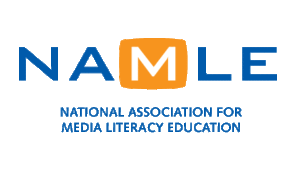

2019 Research Symposium:
Media Literacy: What NOW?
2019 BEA Research Symposium: Media Literacy: What NOW?
The Research Symposium will take place in Las Vegas during the BEA2019 conference on Sunday, April 7, 2019
Submission Deadline Extended: December 3, 2018
(Submission site opens in mid-July – guidelines are below)
Research Symposium Co- Chairs:
William G. Christ, Professor, Trinity University | wchrist@trinity.edu
Michelle Ciulla Lipkin, Executive Director, National Association for Media Literacy Education (NAMLE) | mciullalipkin@namle.net
Belinha S. De Abreu, Sacred Heart University/UNESCO—The Global Alliance for Partnerships on Media and Information Literacy (GAPMIL)| deabreub@gmail.com
Our discipline, whether we see ourselves in Broadcasting, Multicasting, Communication, Media (including Social Media), Film, Production, Virtual/Augmented Reality, or something else, continues to be challenged as
- media industries are transformed and replaced,
- media texts morph through multiple distribution technologies,
- audiences are reconceptualized and reconfigured,
- production tools are now available to anyone who can afford a phone, and,
- our public and private spaces are assaulted with divisive political and personal discourse.
The overarching question of the research symposium is “What does it mean to be media literate today?”
This research symposium brings together top scholars in the field of media literacy. Faculty and students are encouraged to participate by developing and submitting papers that are either theoretical (e.g., meta-analyses, studies that test current practices, commentary on current practices, and/or visionary essays about the future) or applied (e.g., media literacy best practices/assignments/assessments that have worked in classes and/or curricula) scholarship. Papers tend to be between 3,000 to 4,000 words excluding references, tables and appendices. All submissions will be peer-reviewed and, if accepted, will be included in Routledge’s Electronic Media Research Book Series.
The 2019 BEA Research Symposium will sponsor:
– Paper Competition (for faculty and students)
Note: Student papers (graduate and undergraduate categories) offers monetary awards for 1st ($300), 2nd ($200) & 3rd ($100) place and are also eligible for publication in an edited volume with Routledge.
Paper Submission Process (the submission process will open in mid-July)
BEA Members will be able to upload papers to the BEA2019 All Academic site with their BEA membership login and password. If you know you BEA login information login to your All Academic account. If you forgot your BEA membership password, please click here to reset. If you ARE NOT a member, please click here to create an account.
Once you login with your BEA membership login and password, follow the steps below:
1. Submit a paper… Click on the link for “Submit or Edit a Paper or Program Proposal.”
2. Select 2019 Research Symposium – Media Literacy: What’s NOW?
3. Submit the title & abstract… Follow the guidelines to add a title and abstract
4. Adding co-authors… At the prompt, add any co-authors to the paper. Note: If your co-author(s) aren’t BEA members, have them create All Academic accounts first so you can easily search and link them to the paper.
5. Review & Upload… Review your information and upload your paper.
Editing Abilities… You can edit and/or re-submit papers up until the deadline at 11:59 pm ET on December 3.
Length & Style… Papers normally do not exceed 4,000 words excluding references, tables and appendices. Use APA style.
The BEA2019 paper competition is BLINDLY REVIEWED Do NOT include a cover page with author and contact information and remove ALL author information from internal pages. Judges need to blindly review your papers. Your paper information will be directly linked to your profile.
Research Submission Information
- Please indicate the author(s) status: (faculty, graduate student, undergraduate student)
- You may submit different papers; however, conference organizers reserve the right to select papers to ensure greater representation in published proceedings.
- Papers must be written using APA Style.
- Papers accepted and presented are eligible for publication in the BEA Routledge book series, contingent on standard revision procedures.
Presenters who have committed to the symposium include (in alphabetical order):
William G. Christ, Trinity University: Professional Curricula and Media Literacy: Oil and Water?
Belinha De Abreu, Sacred Heart University/UNESCO–(GAPMIL): Global Media Literacy: Where are We Now?
Aaron Delwiche, Trinity University: Bots and Sockpuppets: Media Literacy and the New Propaganda
Jennifer Fleming, California State University, Long Beach: News and Media Literacy
Jennifer J. Henderson, Trinity University: Participatory Culture and Media Literacy
Michelle Ciulla Lipkin, Executive Director, NAMLE: Media Literacy in the U.S.: Where are We Now?
Paul Mihailidis, Emerson College: Advocacy, Citizenship, and Media Literacy
W. James Potter, University of California-Santa Barbara: Designing Media Literacy Interventions
Srividya “Srivi” Ramasubramanian, Texas A&M University: Identity, Social Justice, and Media Literacy
Jeff Share, University of California-Los Angeles: Environmental Justice and Media Literacy
Federico Subervi, Latino Media Scholar & Consultant: Diversity and Media Literacy
Kathleen Tyner, University of Texas-Austin: Media Literacy in the Age of Big Data
